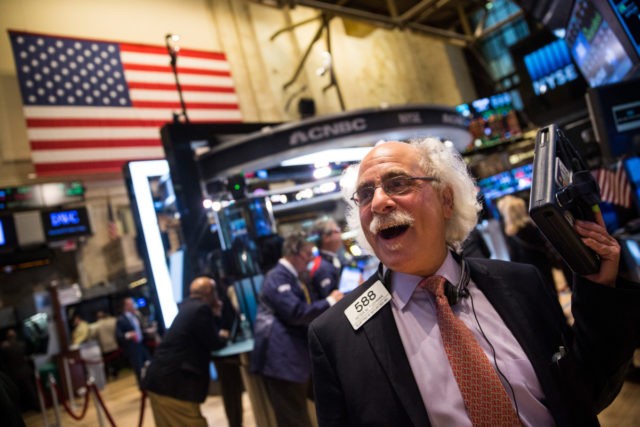Last week’s coronavirus panic selling in the stock market gave way to what might be panic buying on Monday.
Stocks rose sharply on Monday, with the Dow Jones Industrial Average having its biggest one-day gain since 2009, on the expectation that the Federal Reserve and global central banks are likely to take action to provide economic stimulus to offset drag from the viral pandemic.
The Dow jumped 1,293.96 points higher, or 5.1 percent, to close at 26,703.32. That is the largest percentage gain since 2009 and the largest one-day point gain ever.
The S&P 500 index jumped 4.6 percent, its best day since December 2018. The Nasdaq Composite climbed 4.5 percent, also its best day since December 2018. Stocks were volatile in the final month of 2018 as the market worried that the Fed would continue to hike interest rates despite signs of a softening economy, rising sharply when traders became convinced that the cycle of Fed hikes was over.
The huge gains clawed back some of the ground lost in a massive sell-off that gave stocks their worst week since the financial crisis of 2008.
European benchmarks were mostly higher, and Asian markets rose broadly.
Bond prices fell, pushing yields higher after having touched another record low earlier in the day. The yield on the 10-year Treasury note rose to 1.15% from 1.12% late Friday.
The virus outbreak that began in central China has been shutting down industrial centers, emptying shops and severely crimping travel all over the world. More companies are warning investors that their finances will take a hit because of disruptions to supply chains and sales.
Investors are increasingly anticipating that the Federal Reserve and other major central banks around the world will lower interest rates or take other steps to shield the global economy from the effects of the outbreak.
“Investors have convinced themselves that global central banks will likely be even more accommodative in order to short-circuit any psychological damage, ” said Sam Stovall, chief investment strategist at CFRA.
–The Associated Press contributed to this report.

COMMENTS
Please let us know if you're having issues with commenting.